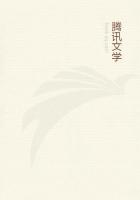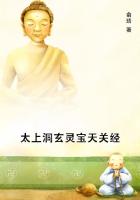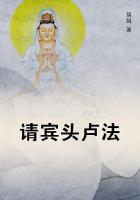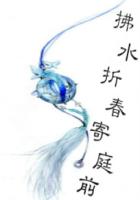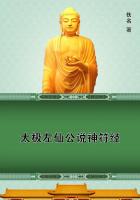It is for the reader who has preserved rectitude of intellect, sincerity of heart, dignity of nerves, unhurried thoughts, an unexcited heart, and an ardour for poetry, to judge between such poems and an authentic passion, between such poems and truth, I will add between such poems and beauty.
Imagery is a great part of poetry; but out, alas! vocabulary has here too the upper hand. For in what is still sometimes called the magnificent chorus in "Atalanta" the words have swallowed not the thought only but the imagery. The poet's grievance is that the pleasant streams flow into the sea. What would he have? The streams turned loose all over the unfortunate country? There is, it is true, the river Mole in Surrey. But I am not sure that some foolish imagery against the peace of the burrowing river might not be due from a poet of facility. I am not censuring any insincerity of thought; I am complaining of the insincerity of a paltry, shaky, and unvisionary image.
Having had recourse to the passion of stronger minds for his provision of emotions, Swinburne had direct recourse to his own vocabulary as a kind of "safe" wherein he stored what he needed for a song. Claudius stole the precious diadem of the kingdom from a shelf and put it in his pocket; Swinburne took from the shelf of literature--took with what art, what touch, what cunning, what complete skill!--the treasure of the language, and put it in his pocket.
He is urgent with his booty of words, for he has no other treasure.
Into his pocket he thrusts a hand groping for hatred, and draws forth "blood" or "Hell"--generally "Hell," for I have counted many "Hells" in a quite short poem. In search of wrath he takes hold of "fire"; anxious for wildness he takes "foam," for sweetness he brings out "flower," much linked, so that "flower-soft" has almost become his, and not Shakespeare's. For in that compound he labours to exaggerate Shakespeare, and by his insistence and iteration goes about to spoil for us the "flower-soft hands" of Cleopatra's rudder-maiden; but he shall not spoil Shakespeare's phrase for us. And behold, in all this fundamental fumbling Swinburne's critics saw only a "mannerism," if they saw even thus much offence.
One of the chief pocket-words was "Liberty." O Liberty! what verse is committed in thy name! Or, to cite Madame Roland more accurately, O Liberty, how have they "run" thee!
Who, it has been well asked by a citizen of a modern free country, is thoroughly free except a fish? Et encore--even the "silent and footless herds" may have more inter-accommodation than we are aware.
But in the pocket of the secondary poet how easy and how ready a word is this, a word implying old and true heroisms, but significant here of an excitable poet's economies. Yes, economies of thought and passion. This poet, who is conspicuously the poet of excess, is in deeper truth the poet of penury and defect.
And here is a pocket-word which might have astonished us had we not known how little anyway it signified. It occurs in something customary about Italy:
Hearest thou, Italia? Tho' deaf sloth hath sealed thine ears, The world has heard thy children--and God hears.
Was ever thought so pouched, so produced, so surely a handful of loot, as the last thought of this verse?
What, finally, is his influence upon the language he has ransacked?
A temporary laying-waste, undoubtedly. That is, the contemporary use of his vocabulary is spoilt, his beautiful words are wasted, spent, squandered, gaspilles. The contemporary use--I will not say the future use, for no critic should prophesy. But the past he has not been able to violate. He has had no power to rob of their freshness the sixteenth-century flower, the seventeenth-century fruit, or by his violence to shake from either a drop of their dews.
At the outset I warned the judges and the pronouncers of sentences how this poet, with other poets of quite different character, would escape their summaries, and he has indeed refuted that maxim which Ihad learned at illustrious knees, "You may not dissociate the matter and manner of any of the greatest poets; the two are so fused by integrity of fire, whether in tragedy or epic or in the ******st song, that the sundering is the vainest task of criticism." But Icannot read Swinburne and not be compelled to divide his secondhand and enfeebled and excited matter from the successful art of his word. Of that word Francis Thompson has said again, "It imposes a law on the sense." Therefore, he too perceived that fatal division.
Is, then, the wisdom of the maxim confounded? Or is Swinburne's a "single and excepted case"? Excepted by a thousand degrees of talent from any generality fitting the obviously lesser poets, but, possibly, also excepted by an essential inferiority from this great maxim fitting only the greatest?

